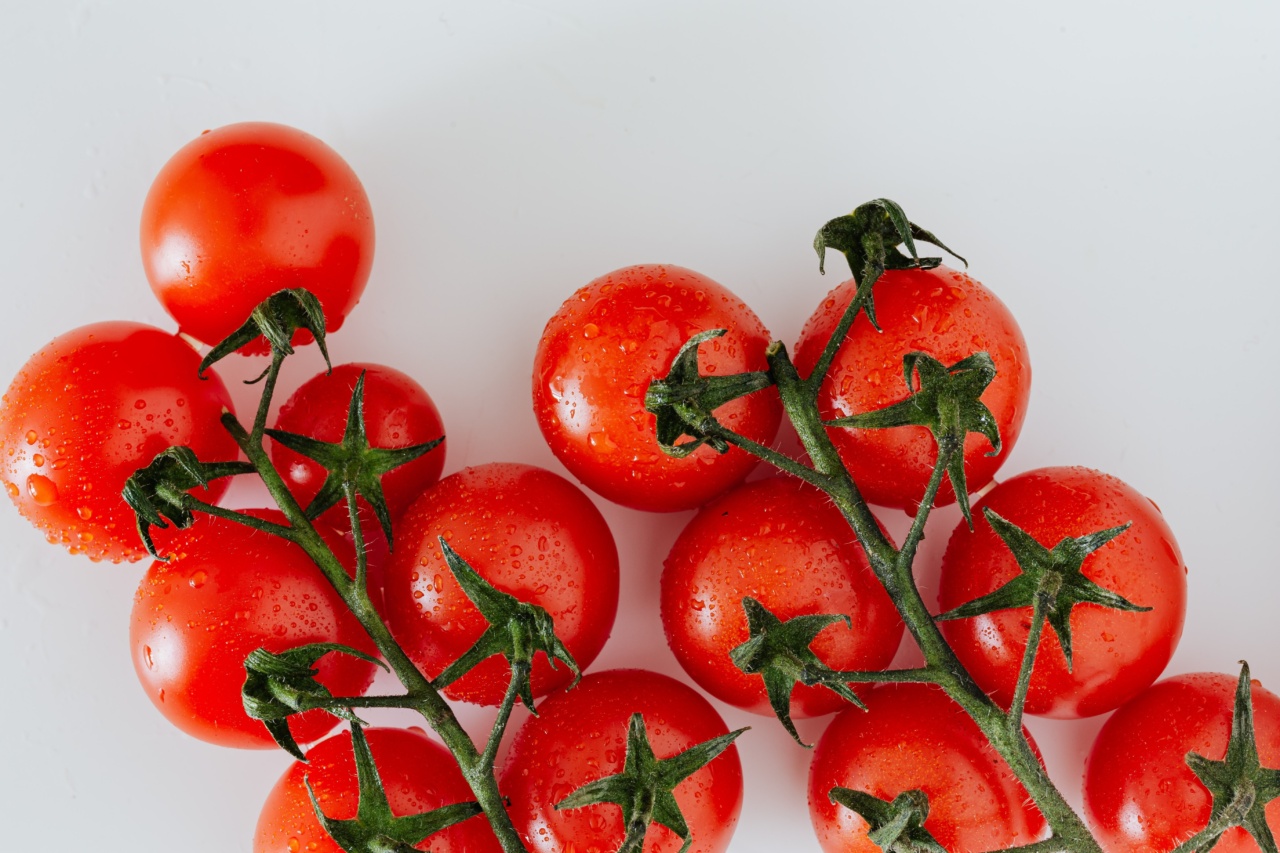Having fresh breath is not only important for social interactions but also for maintaining good oral hygiene.
While regular brushing and flossing are essential for fresh breath, the food we consume can also play a significant role in how our breath smells. Certain foods contain compounds that can cause bad breath, so it’s worth being aware of them and avoiding them when possible. In this article, we will discuss the top 30 foods to avoid for clean breath.
1. Garlic
Garlic is known for its strong and pungent flavor, but unfortunately, it also leaves a lasting impression on your breath. When garlic is metabolized, it releases sulfur compounds that can be absorbed into your bloodstream and exhaled through your lungs.
This can lead to persistent bad breath.
2. Onions
Similar to garlic, onions also contain sulfur compounds that can contribute to unpleasant breath. These compounds can linger in your mouth even after brushing your teeth or using mouthwash, resulting in persistent onion breath.
3. Fish
Fish, especially oily varieties like salmon and tuna, contain high levels of trimethylamine, a compound responsible for fishy breath. Even after cooking or chewing gum, it can be challenging to mask the odor of fishy breath.
4. Coffee
Although a fresh cup of coffee can be energizing, it can also leave you with less-than-pleasant breath. Coffee can dry out your mouth, leading to a decrease in saliva production. This dryness can create an environment conducive to odor-causing bacteria.
5. Alcohol
Alcoholic beverages have a drying effect on your mouth, just like coffee. Additionally, the breakdown of alcohol in your body releases chemical compounds that can be detected on your breath, leading to alcoholic breath.
6. Spicy Foods
Spicy foods, such as chili peppers and curry, can cause temporary bad breath. These foods can stimulate the release of stomach acid, which can then make its way back up into the esophagus, resulting in acid reflux.
The odors accompanying this reflux can be unpleasant.
7. Dairy Products
Dairy products, especially milk and cheese, can contribute to bad breath. These products contain proteins that bacteria in the mouth can break down, resulting in the release of foul-smelling gases.
8. Sugary Foods
Indulging in sugary foods can lead to an increase in oral bacteria that produce sulfur compounds. These bacteria thrive on sugar, so avoiding excessive consumption can help maintain fresh breath.
9. Red Meat
Eating red meat, such as beef and lamb, can contribute to bad breath. The breakdown of proteins in red meat produces volatile sulfur compounds that can result in an unpleasant odor.
10. Canned Tuna
While fresh fish can already cause fishy breath, canned tuna is even worse due to its prolonged storage. The canning process intensifies the fishy odor, making it more difficult to eliminate.
11. Curry
Curry dishes often contain pungent spices like turmeric, cumin, and coriander. These spices can leave a lingering smell on your breath, making it best to avoid them if you’re concerned about maintaining fresh breath.
12. Eggs
Eggs, particularly hard-boiled eggs, contain sulfur compounds that can contribute to bad breath. These compounds can be absorbed into your bloodstream and released through your breath.
13. Citrus Fruits
While citrus fruits like oranges and grapefruits are generally considered beneficial for oral health, they can trigger acid reflux in some individuals. Acid reflux can cause an acidic taste and odor in the mouth.
14. Tomatoes
Tomatoes are highly acidic, and their consumption can increase the acidity in your mouth, leading to bad breath. Additionally, leftover tomato residue can become trapped between teeth, promoting bacterial growth and causing an unpleasant aroma.
15. Vinegar
Vinegar, often used in salad dressings and pickled foods, can cause bad breath due to its strong odor and acidity. These properties promote an environment where odor-causing bacteria thrive.
16. Corn
Corn is notorious for getting stuck in between teeth, providing a cozy environment for bacteria to grow and release odor-causing compounds. Proper flossing is crucial after consuming corn to avoid potential breath issues.
17. Cruciferous Vegetables
Vegetables like broccoli, cabbage, and cauliflower belong to the cruciferous family and can cause bad breath. These veggies contain sulfur compounds that, when broken down during digestion, can be released through the breath.
18. Curry Leaf
In Indian cuisine, curry leaves are used to enhance the flavor of dishes. However, they have a strong aroma that can be detected on the breath after consumption. Avoiding curry leaves can help maintain fresh breath.
19. Corn Chips
Corn chips, like other starchy foods, can get trapped between teeth and be broken down by bacteria, resulting in the release of foul-smelling gases. Opting for healthier snack alternatives is beneficial for fresh breath.
20. Pickles
Pickles are particularly problematic for maintaining fresh breath due to their high vinegar content. Vinegar promotes bacterial growth and can cause bad breath long after consuming pickles.
21. Peanut Butter
Peanut butter can cling to the roof of your mouth, creating a sticky environment where bacteria can thrive. When these bacteria break down proteins present in peanut butter, it can lead to unpleasant breath.
22. Anchovies
Anchovies are tiny, oily fish with an intense flavor. Due to their strong aroma, they can cause an unwelcome fishy aftertaste on your breath. Avoiding anchovies can help maintain fresher breath.
23. Garlic Bread
Combining two bad breath culprits, garlic, and bread, garlic bread can leave you with breath that lingers long after consumption. The combination enhances the potency of garlic’s sulfur compounds.
24. Caffeinated Beverages
Caffeinated beverages like soda and energy drinks can contribute to bad breath. Not only do these drinks contain drying properties, but the sugars they contain can also increase oral bacteria growth.
25. Alcohol-Based Mouthwashes
Mouthwashes that contain alcohol can temporarily freshen breath but also contribute to dry mouth. Dry mouth provides an ideal environment for oral bacteria and can exacerbate bad breath in the long run.
26. Pungent Cheeses
Cheeses that are known for their strong aromas, such as Roquefort and Limburger, can cause persistent bad breath. The breakdown of proteins in pungent cheeses releases odorous sulfur compounds.
27. Bananas
While fruits are generally considered to have freshening properties, bananas can be an exception. Due to their high sugar content and sticky texture, bananas can contribute to the growth of odor-causing bacteria.
28. Popcorn
Popcorn, a popular snack at movie theaters, can leave behind remnants that get trapped in between teeth. These remnants provide a breeding ground for bacteria, leading to potential breath issues.
29. Bread Rolls
Bread rolls, especially when made with refined flour, can break down into simple sugars in the mouth. Oral bacteria feed on these sugars, resulting in an increase in odor-causing compounds.
30. Raisins
Raisins, despite being a sweet and healthy snack, can cling to teeth and promote bacterial growth. The sticky nature of raisins makes them challenging to remove, potentially leading to unpleasant breath.





























